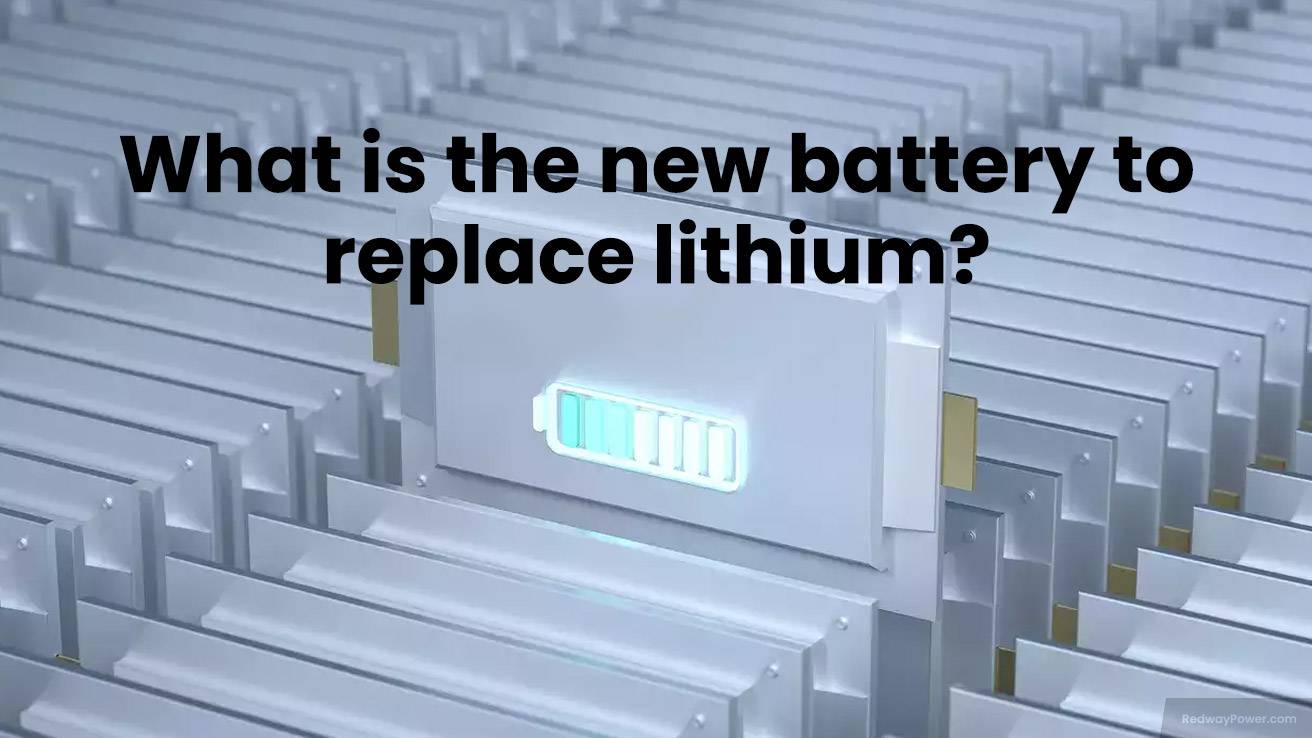Explore the future of energy storage with solid-state batteries, a revolutionary technology challenging the limitations of traditional lithium-ion counterparts. In this post, we’ll unravel what solid-state batteries are, their potential applications, and how they compare in terms of cost and efficiency, promising a new era of longer-lasting and more efficient energy solutions. Buckle up for an electrifying journey into this exciting frontier!
The Limitations of Lithium Batteries
While lithium batteries have been popular for their energy density, they come with drawbacks. Short lifespan due to repeated charging, thermal runaway risks causing safety concerns, flammable liquid electrolytes, and ethical concerns regarding rare earth metals are notable issues. Additionally, charging speed remains a limitation. In the next section, we’ll delve into an alternative solution, solid-state batteries, addressing these limitations.

- Lifespan Concerns:
- Lithium batteries face degradation over time due to charging cycles, leading to reduced capacity.
- Safety Risks:
- Thermal runaway in lithium batteries can result in overheating, fires, or explosions, posing significant safety concerns.
- Environmental and Ethical Issues:
- Flammable liquid electrolytes in lithium-ion batteries pose environmental risks, and the use of rare earth metals raises ethical and sustainability concerns.
- Charging Speed Limitations:
- Despite improvements, lithium batteries, especially in electric vehicles, still face challenges with limited charging speeds compared to traditional combustion engines.
Conclusion: These limitations emphasize the need for alternative solutions like solid-state batteries, which promise enhanced safety features and higher energy densities for prolonged power.
Introduction to Solid-State Batteries
Solid-state batteries are emerging as a promising alternative to traditional lithium-ion batteries, offering improved safety and energy density. Unlike liquid electrolyte systems, they use solid electrolytes, addressing key limitations in current battery technology.
- Enhanced Performance:
- Solid-state batteries boast improved stability, longer lifespan, faster charging, and higher energy storage capacity compared to conventional lithium-ion batteries.
- Temperature Resilience:
- Their ability to operate at higher temperatures makes solid-state batteries suitable for extreme environments like space exploration and military applications.
- Safety Advantages:
- Eliminating the risk of leakage or combustion associated with liquid electrolytes enhances safety, reducing the need for complex cooling mechanisms.
- Ongoing Research and Challenges:
- Ongoing research aims to enhance production efficiency and scalability. Despite challenges in cost-effectiveness and large-scale manufacturing, progress is being made towards commercialization.
Conclusion: Solid-state batteries hold tremendous potential as a safer and more efficient replacement for traditional lithium-ion batteries, with applications spanning transportation, renewable energy storage, healthcare devices, and beyond.
Advantages of Solid-State Batteries
Solid-state batteries are emerging as a promising alternative to traditional lithium batteries, offering compelling advantages for future energy storage. Their higher energy density, improved safety, faster charging, longer lifespan, and versatile design make them a standout prospect.
- Higher Energy Density:
- Solid-state batteries store more energy in a smaller space, paving the way for compact and lightweight devices with long-lasting power.
- Enhanced Safety:
- The absence of liquid electrolyte reduces the risk of leakage or combustion, making solid-state batteries ideal for safety-critical applications like electric vehicles and wearables.
- Faster Charging:
- Solid-state batteries allow for rapid charging without compromising performance, potentially revolutionizing charging times for devices like smartphones and electric cars.
- Longer Lifespan:
- Stable materials and prevention of dendrite formation contribute to a longer lifespan compared to traditional lithium-ion cells, reducing the frequency of battery replacements.
- Scalability and Versatility:
- Solid-state batteries offer greater scalability and design flexibility, accommodating various shapes and sizes for integration into diverse applications across industries.
Conclusion: The remarkable advantages of solid-state batteries position them as a highly attractive choice for powering future devices and technologies. Continued research and technological advancements are likely to bring further breakthroughs with broad implications across multiple industries.
Challenges and Progress in Developing Solid-State Batteries
Developing solid-state batteries faces challenges, but ongoing progress is addressing these hurdles. Key challenges include finding suitable materials for the solid electrolyte, achieving high energy density, optimizing manufacturing processes, and ensuring safety and durability. Despite these obstacles, significant advancements have been made, showcasing promising prototypes with improved performance characteristics.
- Solid Electrolyte Materials:
- Researchers seek materials with high ionic conductivity, stability, and compatibility. Options include sulfide-based, oxide-based, and polymer-based electrolytes for optimal performance.
- Energy Density Optimization:
- Current lithium-ion batteries surpass most solid-state batteries in energy density. Researchers focus on improving electrode materials and cell design to enhance the energy density of solid-state batteries.
- Manufacturing Challenges:
- Mass production hurdles require the development of cost-effective techniques for producing reliable and consistent large-scale batches of solid-state batteries.
- Safety and Durability Concerns:
- Ensuring safety involves addressing issues like dendrite formation, thermal management, and mechanical stress through innovative engineering solutions.
- Progress and Future Prospects:
- Despite challenges, significant progress has been made, with promising prototypes demonstrating improved performance characteristics. While commercialization may take time, ongoing research signals a positive future for safe, efficient, and environmentally friendly battery technologies like solid-state batteries.
Potential Applications for Solid-State Batteries
Solid-state batteries, with their unique advantages, have the potential to transform various industries. Their impact could be profound in electric vehicles, portable electronic devices, renewable energy storage, medical devices, aerospace, robotics, and consumer electronics.
- Electric Vehicles (EVs):
- Solid-state batteries, with higher energy density and enhanced safety, offer a promising solution for overcoming limitations faced by lithium-ion batteries in electric vehicles, potentially revolutionizing the EV industry.
- Portable Electronic Devices:
- Compact devices like smartphones and laptops demand reliable, efficient, and safe power sources. Solid-state batteries, with improved energy density and longer lifespan, present an ideal solution for these high-performance portable electronic devices.
- Renewable Energy Storage:
- Solid-state batteries can play a crucial role in renewable energy storage systems, contributing to a more sustainable future. Their efficiency and durability make them effective for storing energy generated by solar panels and wind turbines.
- Medical Devices:
- In medical devices such as pacemakers or implantable sensors, the smaller size, lightweight nature, and long-lasting performance of solid-state batteries ensure reliable operation without frequent replacements or recharges.
- Aerospace and Robotics:
- Aerospace applications, including powering satellites or drones, and robotics for autonomous machines requiring extended operating times, stand to benefit from the advancements in solid-state battery technology.
- Consumer Electronics:
- Wearables and smart home appliances in the consumer electronics sector can leverage the advantages of solid-state batteries, offering improved efficiency and reliability.
The diverse range of potential applications underscores the versatility of solid-state batteries, paving the way for widespread adoption as research continues to enhance efficiency and reduce production costs. The future holds promise as we explore new possibilities powered by these advanced energy sources.
Comparing the Cost and Efficiency of Solid-State vs Lithium Batteries
Examining the cost and efficiency of solid-state and lithium batteries reveals distinct advantages and challenges. Let’s delve into how these technologies compare.
- Cost Considerations:
- Currently, solid-state batteries are more expensive to produce due to intricate manufacturing processes, while lithium-ion batteries benefit from decades of production scale, making them more affordable. Expectations are that ongoing research will reduce the production costs of solid-state batteries over time.
- Efficiency Insights:
- Solid-state batteries hold promise with higher energy density, translating to more energy stored per unit volume or weight. This potential could lead to longer-lasting devices and improved overall performance. In contrast, lithium-ion batteries, while reliable, face limitations in energy density.
- Future Perspectives:
- While both technologies require advancements, solid-state batteries exhibit potential to revolutionize energy storage once challenges are overcome. As demand for enhanced energy solutions rises, the evolution of these technologies in the coming years will be pivotal in addressing our growing energy needs.
Conclusion and Future Outlook
Exploring the limitations of lithium batteries and the potential of solid-state batteries reveals a transformative technology for the future. Solid-state batteries boast advantages such as enhanced safety, increased energy density, faster charging, and longer lifespan compared to lithium batteries.
- Challenges and Progress:
- Although significant strides have been made in developing solid-state batteries, challenges like manufacturing scalability and cost must be addressed for large-scale commercial viability. Ongoing global research and investment signal a positive trajectory in overcoming these obstacles.
- Applications and Potential:
- Solid-state batteries offer vast applications, from electric vehicles to portable electronics and renewable energy storage. The technology has the potential to revolutionize industries by providing safer and more efficient alternatives to traditional lithium-ion batteries.
- Cost and Efficiency Comparison:
- While current production costs for solid-state batteries may be higher due to complex fabrication, advancements and economies of scale can drive down costs over time. Considering long-term benefits like improved performance and lifespan, solid-state batteries stand as a strong contender for the future of energy storage.
In anticipation of further developments, solid-state batteries could usher in a new era of sustainable and powerful energy solutions, contributing to a cleaner and more efficient future.



